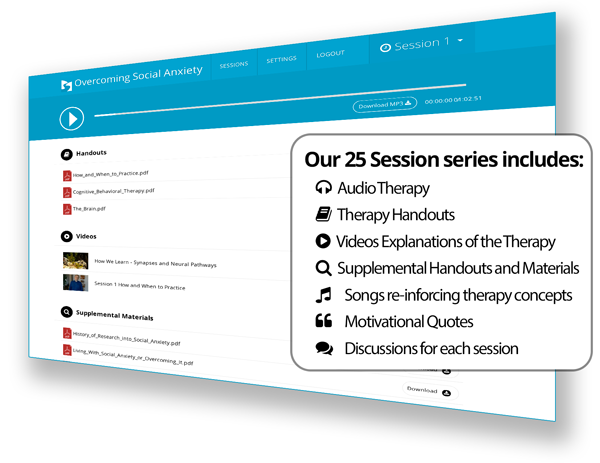
WHAT IS SOCIAL ANXIETY?

Social anxiety is the fear of being judged and evaluated negatively by other people, leading to feelings of inadequacy, inferiority, self-consciousness, embarrassment, humiliation, and depression.
If a person usually becomes (irrationally) anxious in social situations, but seems better when they are alone, then "social anxiety" may be the problem.

The Third Largest Mental Health Care Problem
Social anxiety disorder (formerly termed "social phobia") is a much more common problem than past estimates have led us to believe. Millions of people all over the world suffer from this devastating and traumatic condition every day, either from a specific social anxiety or from a more generalized social anxiety.

In the United States, epidemiological studies have recently pegged social anxiety disorder as the third largest psychological disorder in the country, after depression and alcoholism. It is estimated that about 7% of the population suffers from some form of social anxiety at the present time. The lifetime prevalence rate for developing social anxiety disorder is 13-14%.
Specific and Generalized Social Anxieties
A specific social anxiety would be the fear of speaking in front of groups (only), whereas people with generalized social anxiety are anxious, nervous, and uncomfortable in almost all social situations.
It is much more common for people with social anxiety to have a generalized type of this disorder. When anticipatory anxiety, worry, indecision, depression, embarrassment, feelings of inferiority, and self-blame are involved across most life situations, a generalized form of social anxiety is at work.
Symptoms of Social Anxiety Disorder
People with social anxiety disorder usually experience significant emotional distress in the following situations:
- Being introduced to other people
- Being teased or criticized
- Being the center of attention
- Being watched while doing something
- Meeting people in authority ("important people")
- Most social encounters, especially with strangers
- Going around the room (or table) in a circle and having to say something
- Interpersonal relationships, whether friendships or romantic
This list is certainly not a complete list of symptoms -- other feelings have been associated with social anxiety as well.
The physiological manifestations that accompany social anxiety may include intense fear, racing heart, turning red or blushing, excessive sweating, dry throat and mouth, trembling (fear of picking up a glass of water or using utensils to eat), swallowing with difficulty, and muscle twitches, particularly around the face and neck.
Constant, intense anxiety that does not go away is the most common feature.
People with social anxiety disorder know that their anxiety is irrational and does not make rational (i.e., cognitive) sense. Nevertheless, "knowing" something is not the same thing as "believing" and "feeling" something.
Thus, for people with social anxiety, thoughts and feelings of anxiety persist and show no signs of going away -- despite the fact that socially-anxious people "face their fears" every day of their lives.

Overcome your Social Anxiety
with our leading online treatment program
Dr. Richards discusses the New Therapy Series:
- Proven treatment that has helped thousands of people worldwide
- Taught by Dr. Richards, who suffered with social anxiety for over 20 years
- Based on 23 years experience treating people with social anxiety disorder -- individual and group therapy
- Complete 25 therapy sessions consisting of audio, video, specialized handouts and more.
Published by: Crown

Personally , do you have a social anxiety?
TumugonBurahinyes, i have it, to tell you the truth i am currently suffering from it.
Burahinhmhh interesting
TumugonBurahini'm glad
Burahin